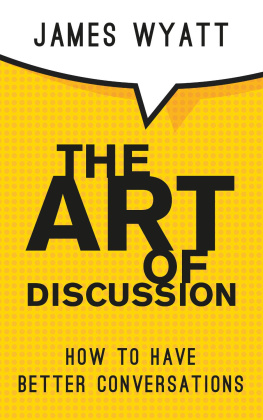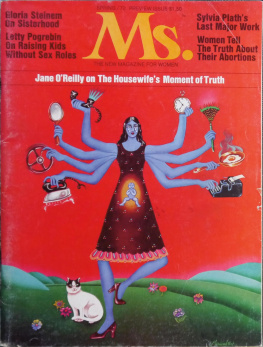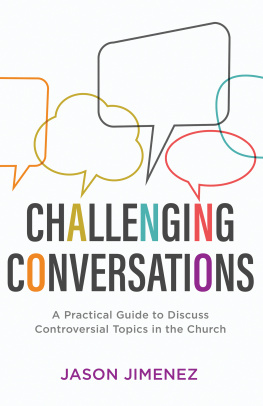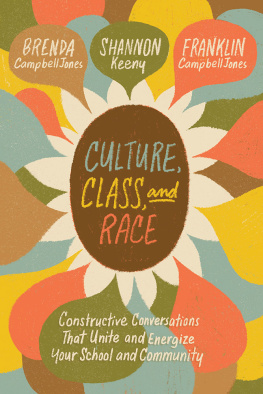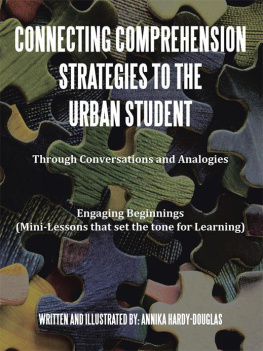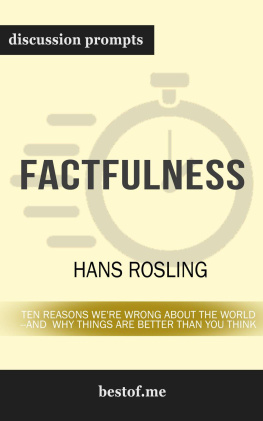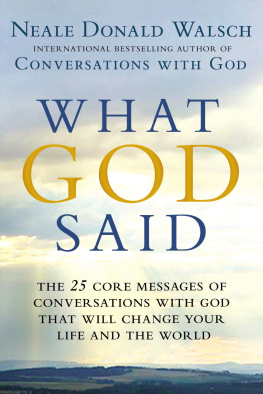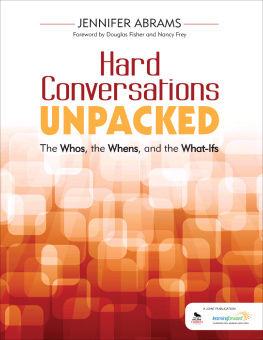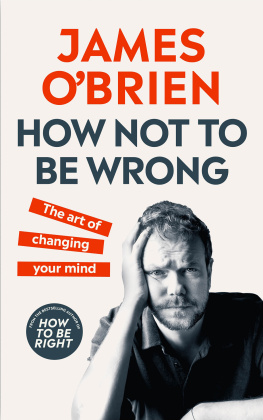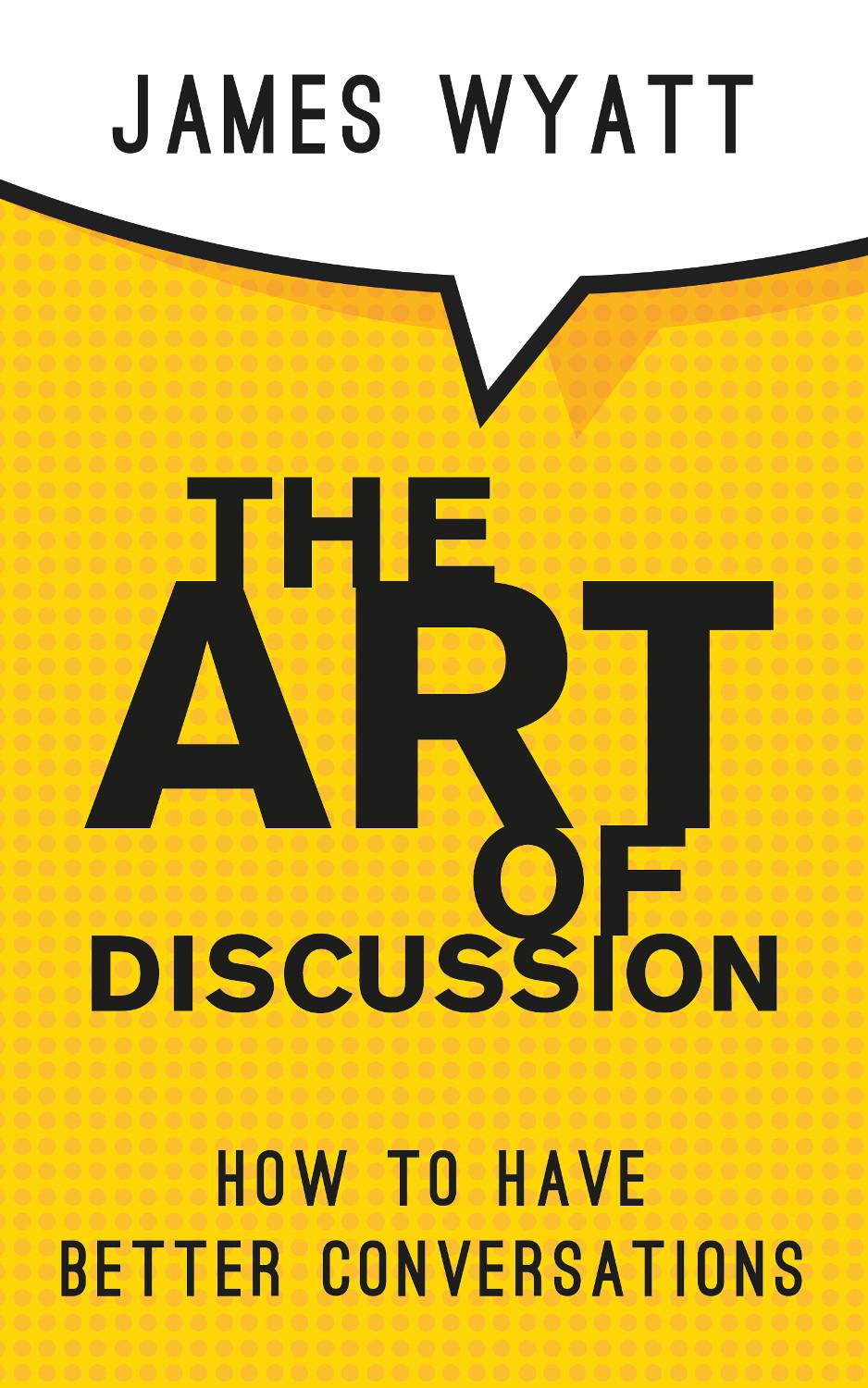
This book is dedicated to my dear husband, who has taught me so much.
He inspires me with his hunger to learn and his unconstrained ambition to achieve his dreams; and
then he educates me with his extraordinary brain and unique perspective.
He motivates me with his endless love and support and his constant encouragement; and
then he challenges me with his critical insight and eye for perfection.
Without these great qualities, this book would never have taken shape; and
I am incredibly grateful for all he has done and all he continues to do to enhance my life.
Contents
Its mind-blowing how things have changed in my lifetime. Thinking back to my childhood in the 1980s, who could possibly have imagined the world we are now living in? We used to watch cardboard sci-fi films, where we would laugh at the incredulity of video phones, and now we have them in our pockets! And whilst it is easy to focus on the technological advancement, I am more amazed how the developments have shifted our perspectives. Growing up in a small middle-class town in the pre-internet era, I was blind to the big world out there; but now the digital age and the resulting globalisation has connected us directly with it. This has opened our minds to a multitude of different ideas, cultures and concepts, and as Western culture has become increasingly liberal and diverse, our freedom of expression has transformed. There is still plenty to be done to eliminate discrimination, as preference for our own kind is still prevalent and cultural expectations continue to reinforce the normal path. However, as a rule, there is much increased tolerance of the differences between people and considerably greater freedom to live our lives in the way we choose. We have certainly come a long way.
If you had told me this was going to happen and I had actually believed you, then I would have guessed that this broadened understanding and greater tolerance would have helped us to get on better with each other. I would have presumed that increased appreciation of our differing perspectives would lead to improvements in the quality of our interactions and enable deeper and more empathetic conversations. This is what I would have anticipated, but sadly, this is not what we see. Strong opinions and our stubborn, defensive mindsets result in a failure to listen to what others have to say. As a result, we simply do not learn from the diverse perspectives and invaluable insight that surrounds us. Our connected world should be bringing us closer together, but the sad reality is that our polarised opinions and dysfunctional conversations are keeping us apart, as debates become increasingly confrontational. TheArt of Discussion has never been more important.
In the past, sparring between exaggerated characters used to be the preserve of light entertainment. Whilst we were laughing at the hilarious squabbles in Laurel & Hardy or Tom & Jerry or the bullying fighting in Punch & Judy or Fawlty Towers, the corresponding news programmes were a model of factual seriousness. We brought in experts to inform us, and we actually listened to them! Nowadays, the lines between entertainment and news reporting have blurred. The growth in channels and 24-hour news has driven increasing competition for audiences, such that serious journalism has evolved into infotainment. The media seem to seek the most extreme and intransigent views in the belief that this will deliver the slapstick fights and comedic jousting that will maximise the entertainment value. This may attract more viewers, but shouldnt we discuss serious topics with a bit more intelligence? Shooting down the other persons perspective is easy, and if done charismatically can be both funny and scarily effective. But beyond establishing that two parties are not in agreement, it gets us nowhere in terms of understanding. As a result, in a world where we should have all the information at our fingertips, discussions are leaving us dangerously uninformed.
The perfect example of this was provided by the backdrop to the UKs momentous decision to leave the European Union (EU). Once the decision was handed to the voting public, the information at our disposal became all important as we faced the unenviable dilemma of picking between two opposing choices. We may have been pro-European but feeling uncomfortable about the direction or accountability of the EU, or anti-Europe but wary of the economic risks that leaving may bring. We may have held other views that meant we were sympathetic to both sides, but there was no best of both worlds option to represent us. All these people in the middle needed some insight to help them decide which way to step. These were the critical people, the swing voters who would sway the result, so you would have hoped for sensible discussions that focused on them, understanding their predicament, and empathising with their conflicting opinions. You would have thought that the leaders on both sides would have relished the opportunity to inform those in the middle to help push them in their direction and achieve the result they wanted. Sadly not!
The politicians decided to give extreme opinions at either end of the spectrum. The Remainers chose the path of an apocalyptic economic forecast, claimed that everything that was good around social policy and international cooperation came purely from the EU and accused anyone who did not agree of being isolationist and xenophobic. These were not exactly arguments to resonate with those in the middle. On the other hand, the Brexiteers encouraged us to stem the terrifying wave of immigration, produced spuriously dodgy financial calculations and economic projections containing holes the size of a bus and just dismissed the pro-Europe arguments as Project Fear. These statements were equally implausible to the uncertain floating voters. The extreme and oversimplified arguments managed only to reinforce the opinions of those who had already decided to vote a certain way, and helped to stir up bitterness and antagonism between people who had lived together happily with their quietly contrary opinions for so long. Outside this increasing nastiness, those in the middle were left in a factual vacuum and had to make a judgement based purely on emotion and gut feeling. Its just lucky that it wasnt an important decision!!!!!
The Brexit debate may have been a particularly clear example of our failings in discussing important subjects, but in the world of politics, this is certainly not an isolated case. Most campaigning is based on oversimplified messaging as if it is a battle between good and evil. Viewpoints are not based on fact and logical argument, but slogan and emotion. In fact, things have got so bad that the 2016 Oxford English Word of the Year was post-truth, the definition of which is:
relating to or denoting circumstances in which objective facts are less influential in shaping public opinion than appeals to emotion and personal belief
with Brexit and the election of Donald Trump highlighted as clear examples of this concept. It is true that both campaigns were dominated by fact-free arguments from both sides, but I do wonder whether this is a particularly new phenomenon. Throughout my adult life, politicians have been evading questions, employing spin doctors to help present things in a misleading but favourable light and taking full advantage of lies, damned lies and statistics. The only real difference is that our current digital age has brought greater transparency and we are increasingly aware of what is happening in the murky corridors of power. Putting it simply, we have a lot more information, and in theory, this should leave us more informed and aware of what is going on in the world.

